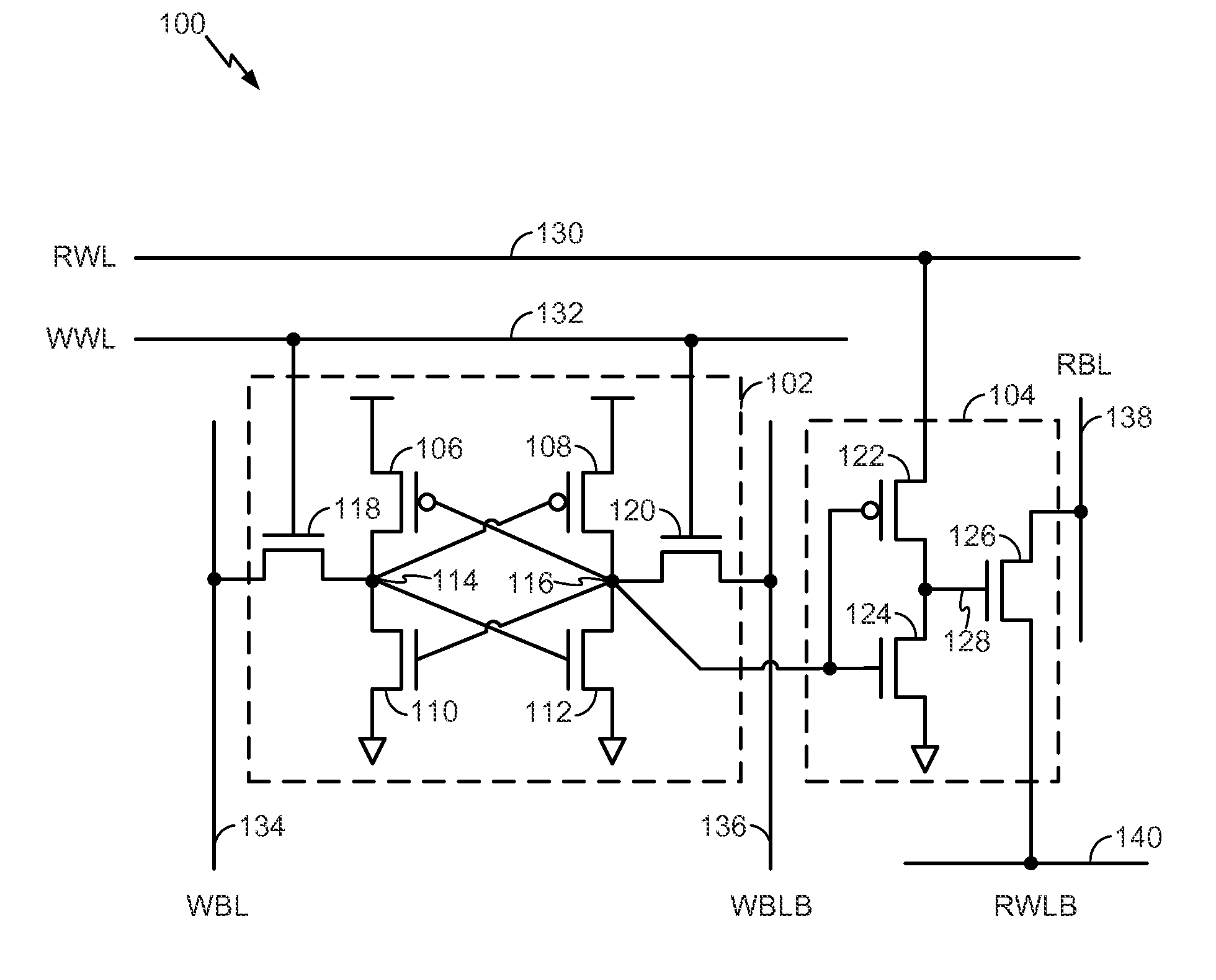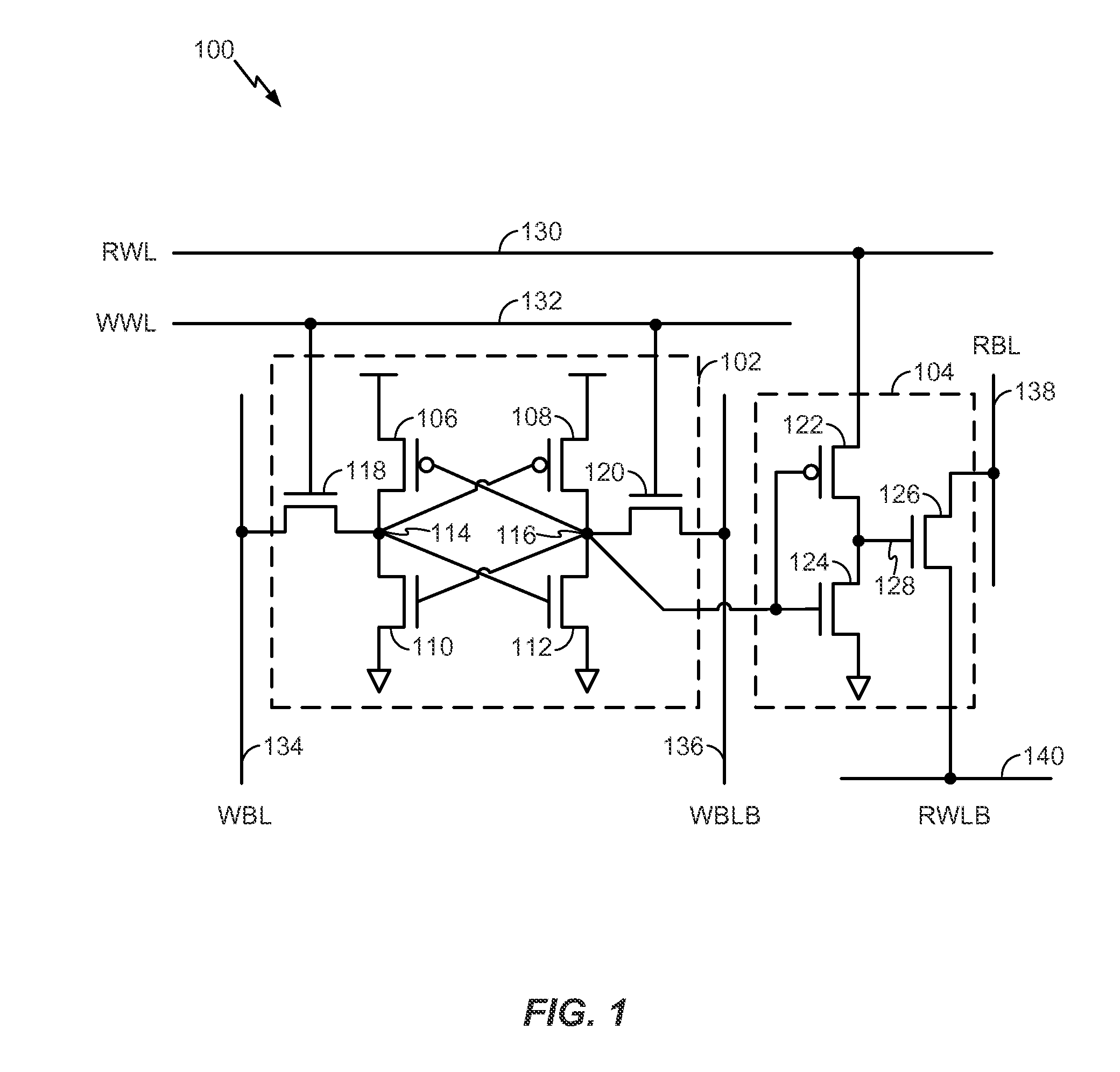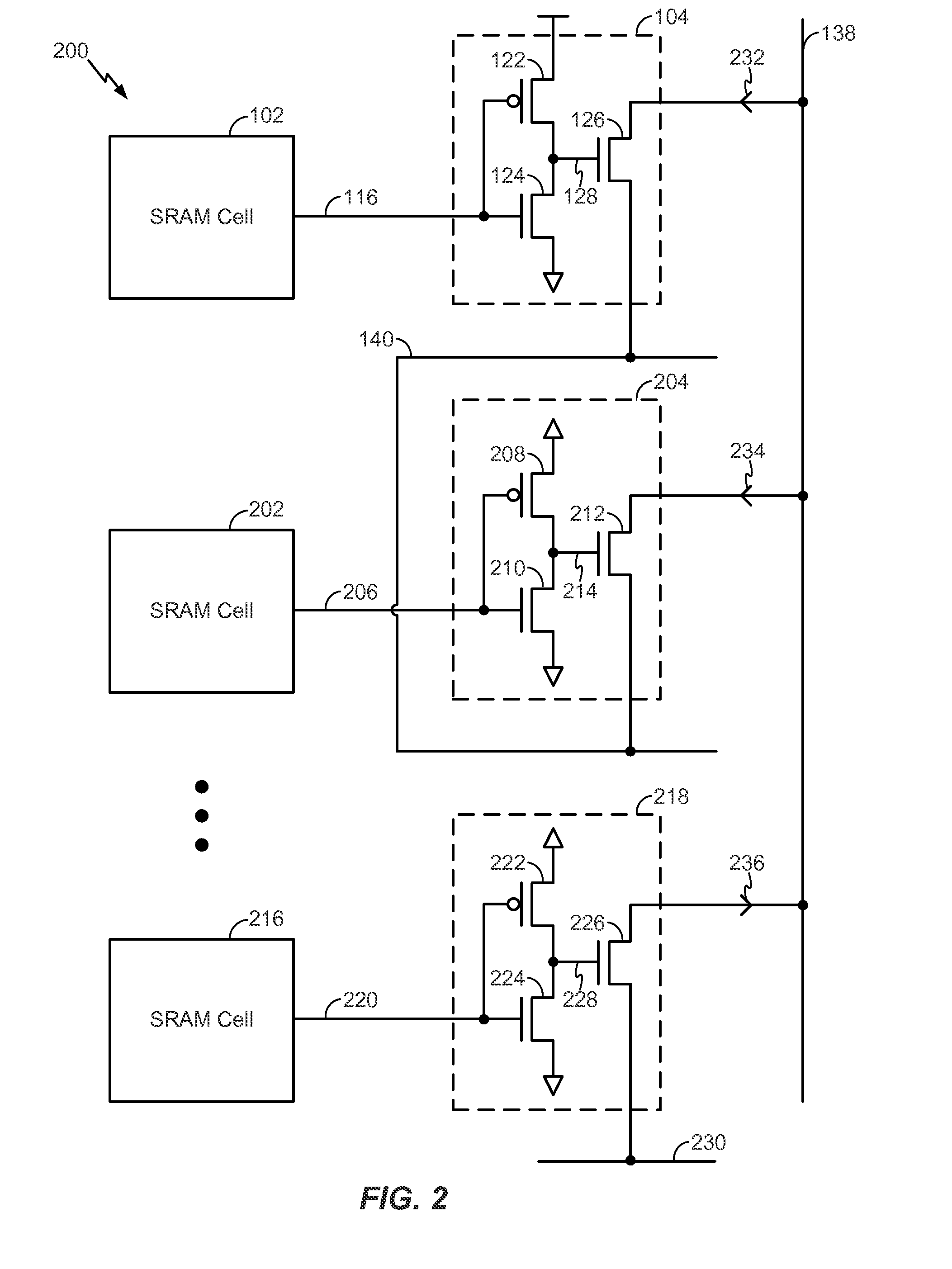SRAM read buffer with reduced sensing delay and improved sensing margin
a read buffer and sensing margin technology, applied in the field of memory devices, can solve the problems of reducing supply voltage, consuming low power, and sram cells may exhibit reduced performance, and achieve the effects of increasing ioff, increasing similarity, and increasing sensing delay
- Summary
- Abstract
- Description
- Claims
- Application Information
AI Technical Summary
Benefits of technology
Problems solved by technology
Method used
Image
Examples
Embodiment Construction
[0019]Referring to FIG. 1, a particular illustrative embodiment of a device is depicted and generally designated 100. The device 100 includes a static random access memory (SRAM) cell 102. The device 100 further includes a read buffer 104 coupled to the SRAM cell 102.
[0020]The SRAM cell 102 may include a pair of cross-coupled inverters. For example, in FIG. 1, the SRAM cell 102 includes a first inverter formed by a p-type metal-oxide-semiconductor field-effect transistor (pMOSFET) 106 coupled to an n-type metal-oxide-semiconductor field-effect transistor (nMOSFET) 110. The first inverter is cross-coupled with a second inverter formed by a pMOSFET 108 coupled to an nMOSFET 112. The pMOSFET 106 is coupled to the nMOSFET 110 via a node 114. The pMOSFET 108 is coupled to the nMOSFET 112 via a node 116.
[0021]The SRAM cell 102 may further include multiple access transistors. For example, the SRAM cell 102 includes an access transistor 118 and an access transistor 120. The access transisto...
PUM
 Login to View More
Login to View More Abstract
Description
Claims
Application Information
 Login to View More
Login to View More - R&D
- Intellectual Property
- Life Sciences
- Materials
- Tech Scout
- Unparalleled Data Quality
- Higher Quality Content
- 60% Fewer Hallucinations
Browse by: Latest US Patents, China's latest patents, Technical Efficacy Thesaurus, Application Domain, Technology Topic, Popular Technical Reports.
© 2025 PatSnap. All rights reserved.Legal|Privacy policy|Modern Slavery Act Transparency Statement|Sitemap|About US| Contact US: help@patsnap.com



